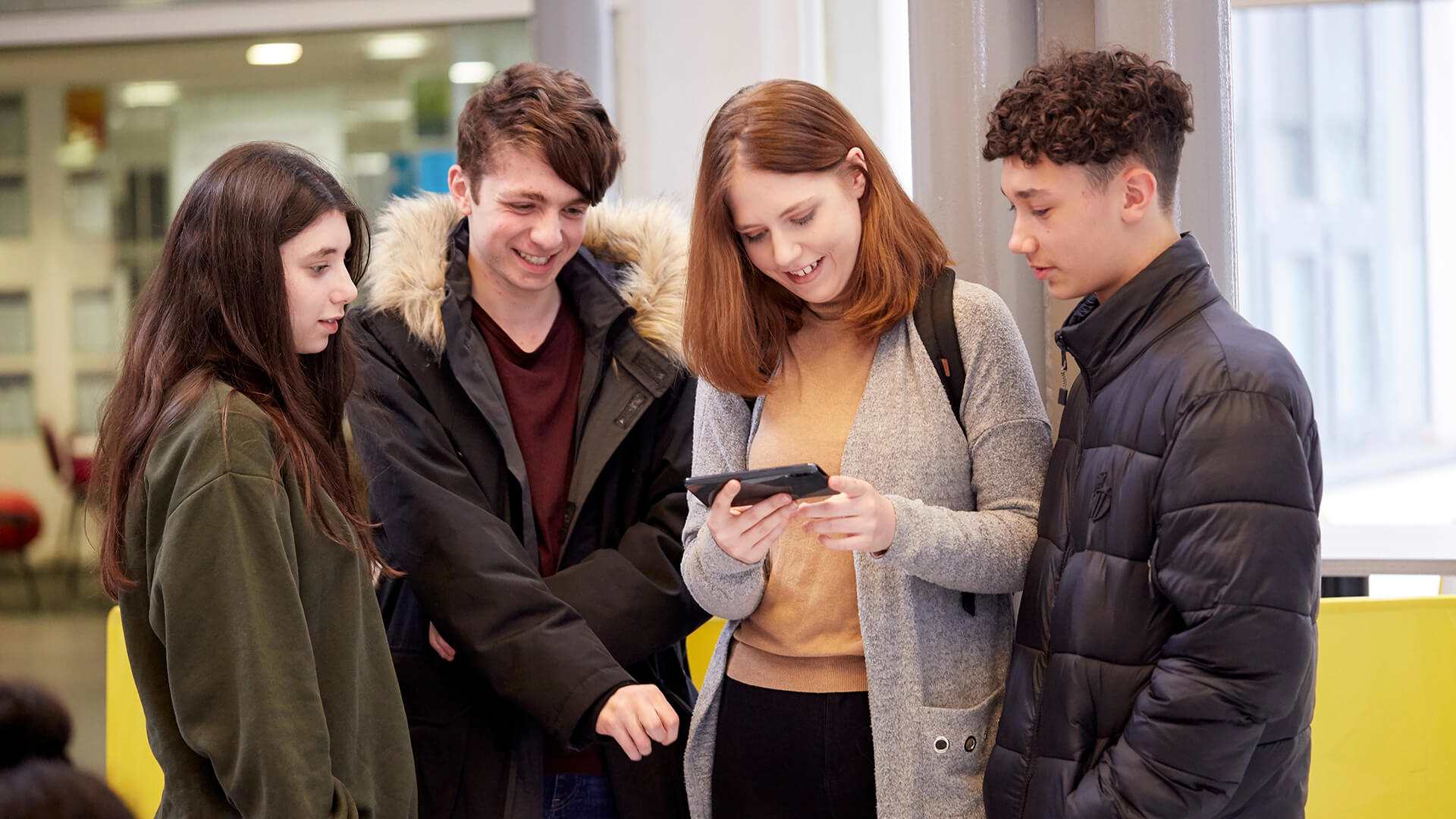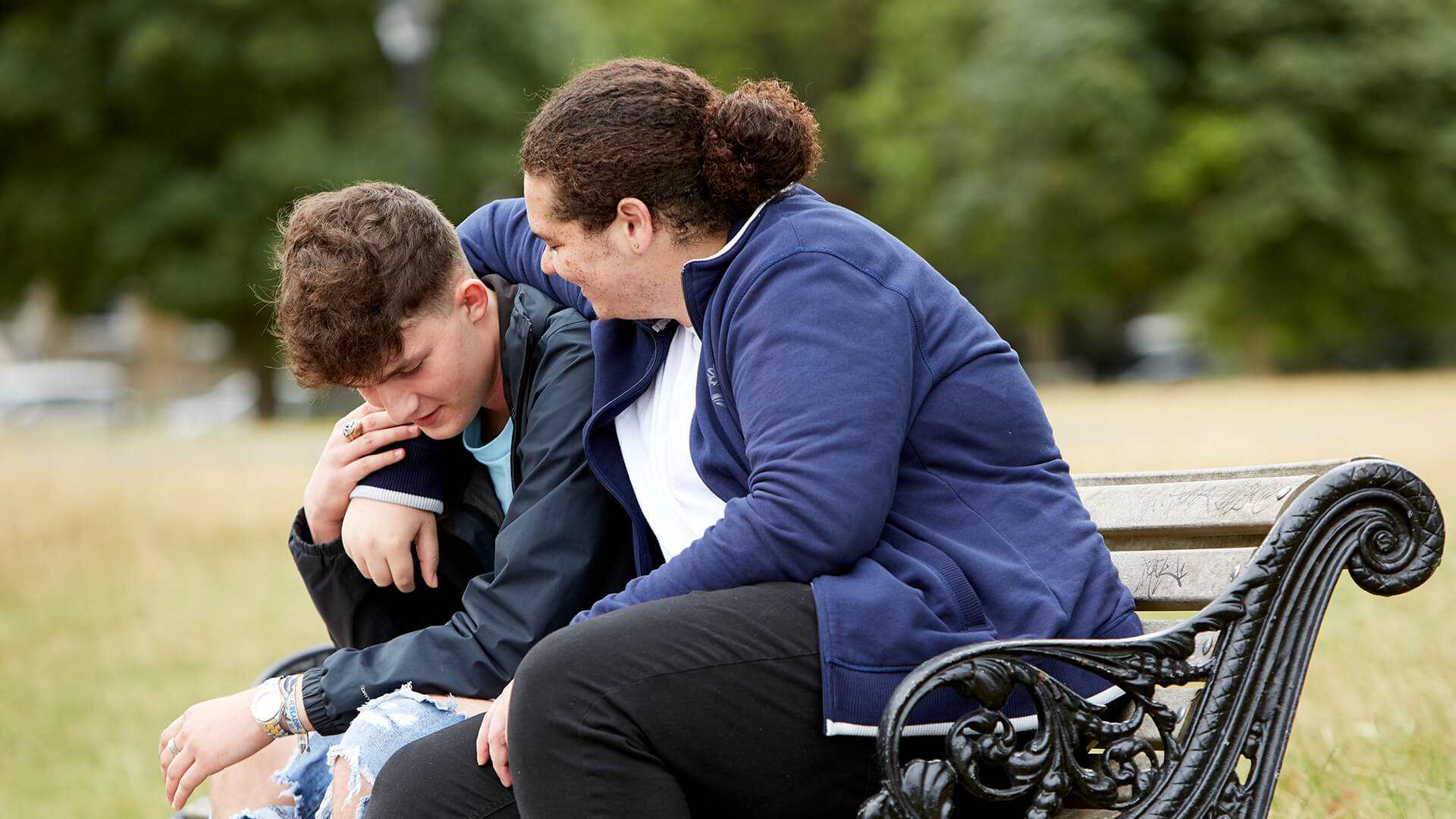
Just like social media, there can be positives and negatives to gaming.
Gaming, when used positively, can be a really helpful way to look after your mental health. This is because it can give us a space to unwind, relax and take time out from the pressures of daily life – just like reading can, or going for a walk. It can give us a sense of achievement and help us learn new skills, like problem-solving. Gaming can also be a really sociable way to have fun and stay connected with friends and family.
But if gaming is starting to take over your life and get in the way of you doing other things you want to do, like study, work, exercise, eat or sleep then this can be a sign of a problem. You might start to feel out of control, unable to deal with real life, low mood or using drugs to game longer. If any of these are familiar to you, then you are not alone. There are things you can do to feel better and start enjoying gaming again in a healthy and positive way.
I love the fact that gaming takes you to a new reality and you can create your own worlds.
How can gaming affect my mental health?

Gaming can have a good impact on your mental health. You might find that gaming is making you feel good and connected with friends. It can help with things like:
Taking time out from our busy lives to switch off and relax by gaming. This helps us to give time to process your day, and take time to recharge after school, college, work, or university.
Connecting with friends. Keeping in touch with friends online can be a great way to socialise and can give us a low-pressure space to check in with each other, talk about what’s going on in our lives and how we’re really feeling. If you find talking about your thoughts and feelings difficult face to face, chatting with friends online might feel easier. It can be reassuring to know that your friends are there for you and that you’re not alone.
Learning skills you can use in everyday life, like problem-solving or being a team player. Gaming can make you look at something from a different point of view or consider how you approach a problem. Learning to be a team player can be useful too. For example, if you are working on a group project at school, you can understand what roles everyone will play and how you can work on the project as a team.
But sometimes, gaming can become too much. You might find that you are often thinking about when you are next able to game, or you stop doing other hobbies to game. This might make you feel out of control and that gaming is taking over your life. If gaming is effecting everyday things like school, sleep or work, it can lead to feelings of:
- isolation
- sadness or low mood
- anger
- loneliness
If you are having any of these feelings, it’s important that you reach out for help and get the support you need. There are people who will help you get through this.

How to have a more positive time online
If you find that gaming is having a negative impact on your mental health, here are some tips on how you can have a more positive time:
-
Build your own positive community
Build your own positive community by connecting with people, friends and family you feel comfortable with. Being part of a group can make you feel reassured, safe and an important part of the team. There will be other people who have the same interests in gaming as you where you can share and connect with each other. Avoid gaming spaces that are harmful for your mental health. If you are finding things difficult when gaming, talk to someone you trust.
-
Check your mood before gaming
This can help you reflect on how you are feeling and how this might affect your gaming time. By checking in with your thoughts and feelings, you can understand if gaming is going to make you feel better or, if it’s going to have a negative impact on your mood.
-
Privacy settings
Set up your privacy settings with what you feel comfortable with. In your console settings, you can set who can see your profile as well protecting your information and who you connect with. This can help you to feel safe when gaming and keep your space positive.
-
Find time for other activities
Try scheduling in time to do other things you enjoy. It’s good to have a balance, and putting in time to do these things can help you manage your time.
-
Look after yourself
Make sure you also have time to look after yourself. Basic needs like enough sleep, food and taking care of your hygiene are really important for your wellbeing. By looking after yourself, you’ll have a better time gaming.
What to do if gaming becomes too much
If you feel like gaming is taking over your daily life and you’re not sure what to do, here are some things that can help:
-
Talk to someone
Talk to someone you trust about how you are feeling and why it is worrying you. This is often the first step to feeling better.
-
Set a time limit
Decide how much time you think is reasonable for you to spend gaming and set an alarm to remind you when to stop. Or ask someone you are living with to encourage and help you to stop when you need to.
-
Write down how you are feeling
Write down how you are feeling. You might be using gaming to distract yourself from focusing on other worries – it is important to figure out what is causing you to game so much and try to deal with these problems, because distracting yourself will not make them go away. And it’s ok to reach out for help and support so that things can get better.
-
Speak to your GP
Speak to your GP – they can help you with any worries you have about addiction, sleep, low mood, social anxiety or if your behaviour has changed since you started gaming.
Gaming, money and mental health
Like with a lot of hobbies, we might spend money on gaming. That might be buying gaming equipment or accessories, new games, or in-game purchases like new skins. There’s nothing wrong with spending money on our hobbies, as long as we can afford to do that.
Many games might encourage you to spend money, particularly at moments in a game where you are really invested and are enjoying playing. When you are absorbed in a game, it can be harder to keep track of how much you are spending or have the time to think through the decision. Sometimes you might not even realise you are purchasing something. It’s important to check before you start playing a game whether there are in-game or in-app purchases, and consider how much you have to spend. It’s important if you are spending someone else’s money, like a parent's, that you check with them and have their permission first.
Sometimes, we may find it hard to control our spending. It may be that we feel we have to keep buying more items in-game to keep up with friends or to make sure we always have the latest gear. Or we may be struggling to stop spending money on loot boxes. Sometimes spending money on things like loot boxes can give us a good feeling, which we want to keep having. The feeling of taking a risk and winning may make you tempted to start gambling on other things, like sports.
If you are struggling with these things, it’s important that you speak to someone you trust about what’s going on so you don’t start spending money you don’t have. They can also help you set boundaries with how much you spend.
For more information on gambling and how to know if you have a problem, have a look at the Big Deal website.

The idea that someone can enjoy sitting around twiddling their thumbs for hours seems almost alien to a lot of people.
For me, gaming became a place where I could escape my degree, my life and my mental health conditions when things were tough. Gaming also allowed me to do all the things we are told to do to deal with depression and anxiety.
Getting help
Where to get help
If gaming or social media are bringing you down or taking over your life, don't struggle alone. Here are some organisations and helpline services that can support you.
-
Big Deal
Offers information, advice and support for young people affected by problem gambling in England, Scotland and Wales.
Free 24/7 1-2-1 live chat service available.
For support outside of the helpline opening hours, call the National Helpline on 0808 8020 133.
- Opening times:
- 9am - 8pm, Monday - Thursday
-
The Mix
Offers support to anyone under 25 about anything that’s troubling them.
Email support available via their online contact form.
Free 1-2-1 webchat service available.
Free short-term counselling service available.
- Opening times:
- 3pm - 12am, seven days a week
-
Childline
If you’re under 19 you can confidentially call, chat online or email about any problem big or small.
Sign up for a free Childline locker (real name or email address not needed) to use their free 1-2-1 counsellor chat and email support service.
Can provide a BSL interpreter if you are deaf or hearing-impaired.
Hosts online message boards where you can share your experiences, have fun and get support from other young people in similar situations.
- Opening times:
- 24/7
More on looking after yourself
More tips, advice and blogs to help you look after your mental health.


